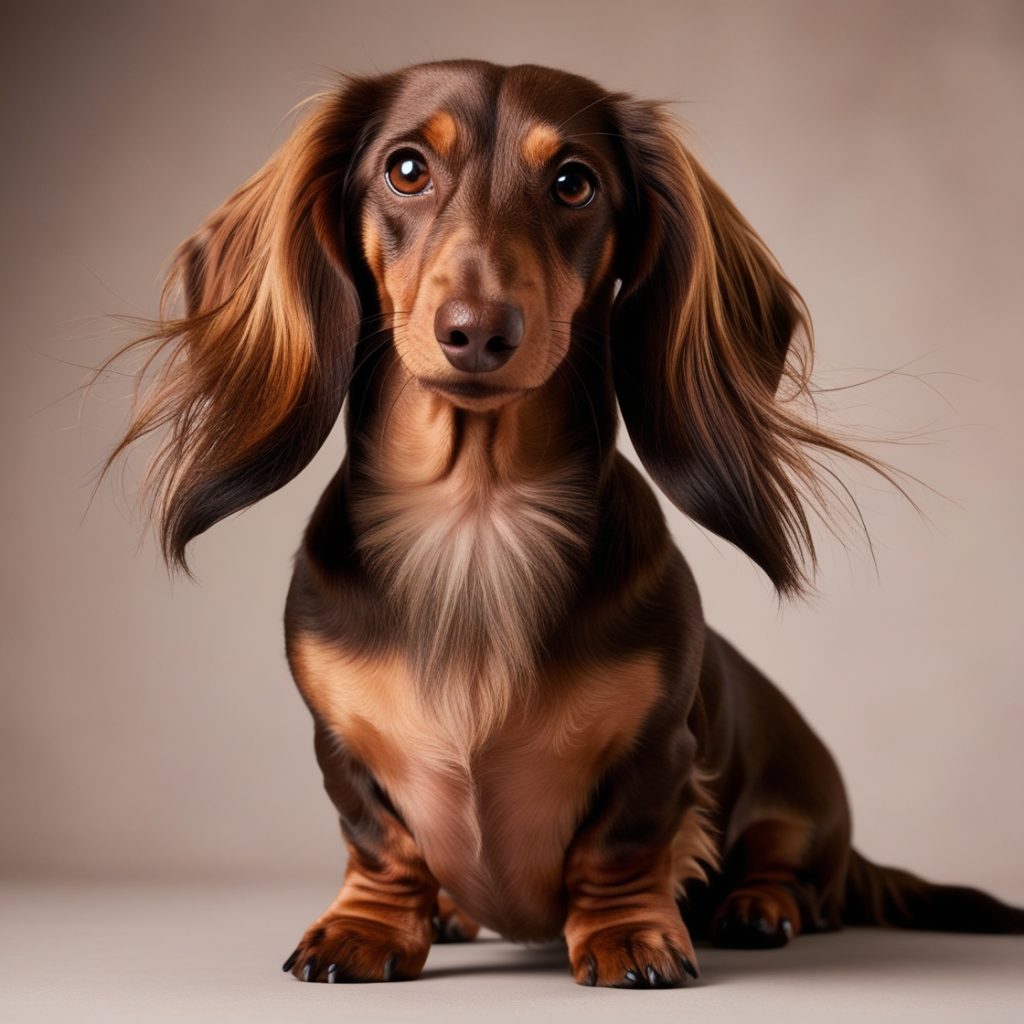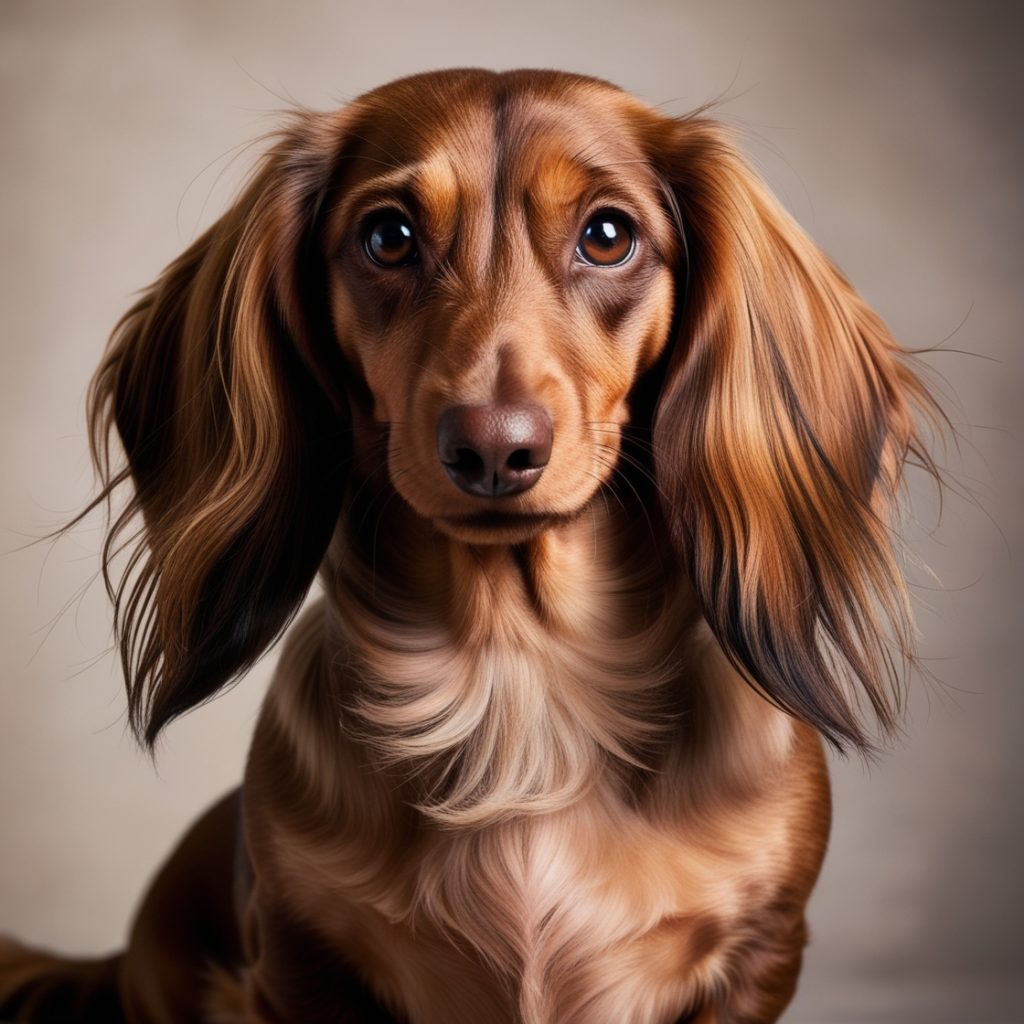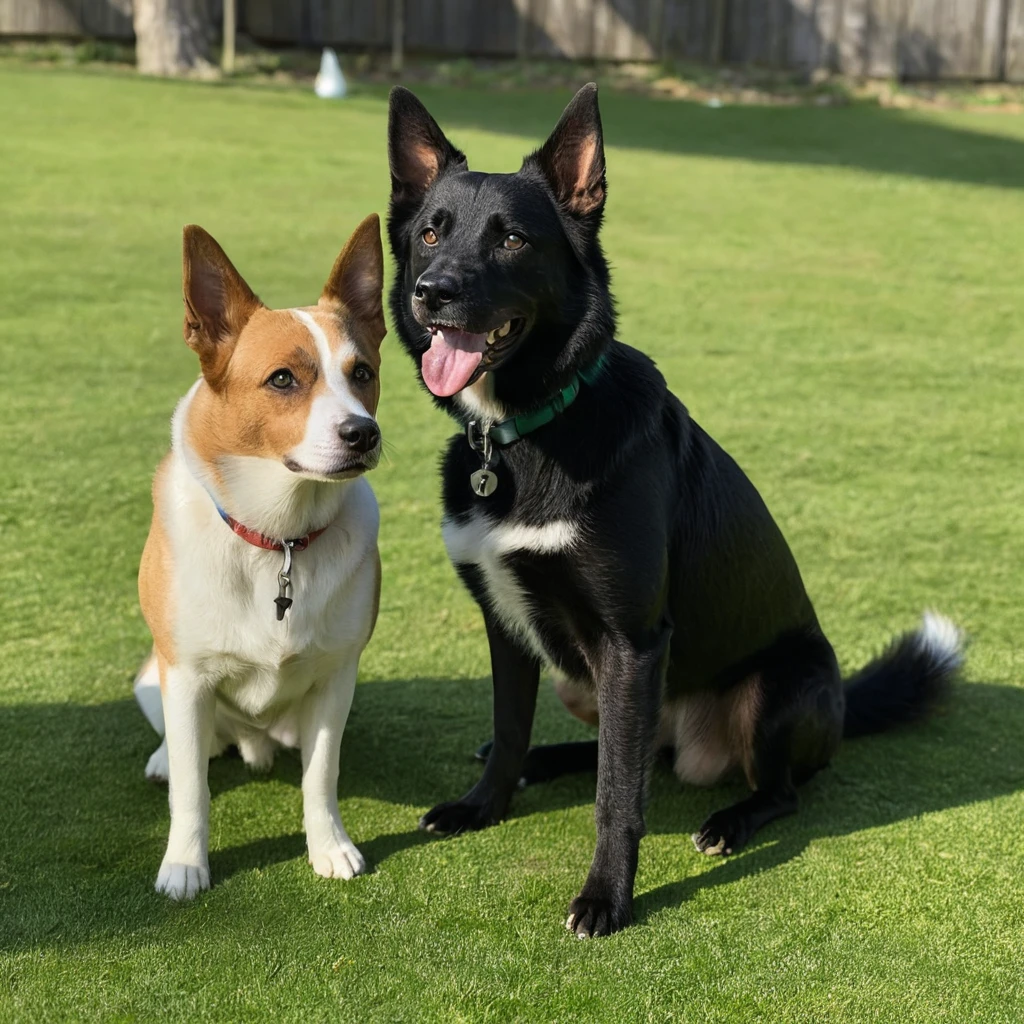Long Haired Dachshund: Full Breed Guide, Care Tips, and FAQs for New Owners
Long Haired Dachshund: The Complete Guide for Dog Lovers
Table of Contents
- Introduction
- Breed Overview
- History of Long Haired Dachshunds
- Physical Characteristics
- Personality and Temperament
- Training a Long Haired Dachshund
- Grooming Needs
- Health and Lifespan
- Feeding and Nutrition
- Exercise Needs
- Long Haired Dachshunds with Families
- Puppy Care: What to Expect
- Living with a Long Haired Dachshund
- Common Questions and FAQ
- Final Thoughts
Introduction
The Long Haired Dachshund is a breed that captures the hearts of dog lovers with its distinctive long, flowing coat, iconic elongated body, and charming personality. Known for being affectionate, loyal, and bold, this breed is an excellent choice for families, singles, and seniors alike. Despite their somewhat comical appearance, Long Haired Dachshunds are robust, energetic dogs that can adapt to a variety of living environments.
In this comprehensive guide, we’ll take you through every aspect of owning a Long Haired Dachshund. From their origins and physical traits to grooming, training, and health needs, this review provides everything you need to know before bringing one of these delightful dogs into your life.
Breed Overview
The Long Haired Dachshund is one of the three coat varieties of the Dachshund breed, the other two being Smooth (short-haired) and Wire-haired. Here’s a quick look at the breed’s key characteristics:
- Weight: 16-32 pounds (Standard) or under 11 pounds (Miniature)
- Height: 8-9 inches tall (Standard); 5-6 inches tall (Miniature)
- Lifespan: 12-16 years
- Coat: Long, sleek, and flowing with a soft texture
- Colors: Black, tan, red, cream, chocolate, and dapple varieties
- Temperament: Affectionate, playful, curious, brave
The breed is popular not only for its striking appearance but also for its versatility as a family pet and its strong hunting instincts.
History of Long Haired Dachshunds
Dachshunds have a rich history dating back to 15th-century Germany, where they were bred as hunting dogs. Specifically, they were used for tracking and flushing out badgers, rabbits, and other small animals, thanks to their low-to-the-ground bodies and strong, muscular legs.
The long-haired variety of the Dachshund was developed by crossbreeding Smooth-haired Dachshunds with spaniels to create a dog with a longer, silkier coat that could handle cooler climates. These dogs maintained the breed’s hunting instincts but offered a unique look that appealed to dog enthusiasts.
In the late 19th and early 20th centuries, Dachshunds became popular as companion dogs, especially in England and the United States. Over time, their status transitioned from working dogs to beloved family pets, though many still retain their hunting instincts.
[Insert image of historical Dachshund artwork, caption: "The Dachshund’s history as a hunting dog has shaped its modern personality."]
Physical Characteristics
The Long Haired Dachshund is immediately recognizable by its elongated body, short legs, and flowing coat. Though small in stature, these dogs have strong, muscular builds that were originally intended to help them burrow and hunt prey.
- Size: Dachshunds come in two sizes: Standard and Miniature. Standard Dachshunds weigh between 16-32 pounds, while Miniature Dachshunds weigh under 11 pounds.
- Coat: The long coat is one of the breed’s most distinguishing features. It’s sleek, soft, and flowing, particularly on the chest, belly, ears, and tail.
- Eyes and Ears: They have large, expressive almond-shaped eyes and long, floppy ears that hang beside their face, giving them a sweet, inquisitive expression.
- Body: Their bodies are elongated, often described as "hot dog" shaped, with strong, short legs built for burrowing.

Personality and Temperament
Long Haired Dachshunds are known for their loyal, affectionate nature. They form deep bonds with their owners and can be quite protective despite their small size. Here are some key traits:
- Loyalty: These dogs are incredibly devoted to their families and can often be found following their owners around the house.
- Playful: Dachshunds are energetic and enjoy playtime. Their playful nature makes them excellent companions for children and adults alike.
- Curiosity: Their hunting background makes them naturally curious, so they love to explore new surroundings and investigate different scents.
- Boldness: Despite their size, Dachshunds have a brave, sometimes even stubborn, personality. They are not afraid to stand up to larger dogs or defend their territory.
While Dachshunds make wonderful pets, they can also be independent thinkers, so early training is crucial to ensure they grow into well-behaved companions.
Training a Long Haired Dachshund
Training a Long Haired Dachshund can be a rewarding experience, but it’s important to approach it with patience and consistency. Due to their independent nature, they may show some stubbornness during training, but with positive reinforcement and early socialization, they can become well-mannered pets.
- Positive Reinforcement: Use treats, praise, and play to encourage good behavior. Dachshunds respond well to rewards and are eager to please when they understand the expectations.
- Potty Training: This can be a challenge with Dachshunds due to their small bladders. Crate training and maintaining a consistent potty schedule are essential for success.
- Leash Training: Dachshunds love to explore and follow their noses, which means they may pull on the leash. Start leash training early to help them learn to walk calmly beside you.
- Socialization: Introducing your Dachshund to different environments, people, and other animals from a young age will help them feel more comfortable and confident.
Training a Long Haired Dachshund requires patience, but once trained, they are loyal, obedient companions.
Grooming Needs
The Long Haired Dachshund’s beautiful coat requires regular care to keep it healthy and looking its best. While their grooming needs are not overly demanding, a regular grooming routine is essential to prevent matting and tangles.
- Brushing: Due to their long coat, they need to be brushed 2-3 times a week to prevent tangles and matting, especially around the ears, belly, and legs where the fur is longer.
- Bathing: These dogs don’t need frequent baths—once every 4-6 weeks is usually sufficient unless they get particularly dirty during outdoor activities.
- Ear Cleaning: Their floppy ears are prone to infections, so be sure to clean their ears regularly and check for signs of irritation.
- Nail Trimming: Like all dogs, Dachshunds need their nails trimmed regularly to prevent discomfort and ensure proper foot health.

Health and Lifespan
The Long Haired Dachshund is generally a healthy breed, but like all purebred dogs, they can be prone to certain health issues. One of the most notable concerns for Dachshunds is their back health.
- Intervertebral Disc Disease (IVDD): Due to their long spines, Dachshunds are prone to IVDD, a condition that affects the discs between the vertebrae. To minimize the risk, avoid letting your Dachshund jump from high surfaces or climb stairs frequently.
- Obesity: Dachshunds are prone to gaining weight, which can put additional strain on their backs. Regular exercise and a balanced diet are essential to keeping them at a healthy weight.
- Dental Health: Like many small breeds, Dachshunds can be prone to dental issues. Regular brushing and professional dental cleanings are important for their long-term health.
With proper care, Long Haired Dachshunds can live long, happy lives, with an average lifespan of 12-16 years.
Feeding and Nutrition
A well-balanced diet is key to keeping your Long Haired Dachshund healthy and active. Choose a high-quality dog food that meets the breed’s nutritional needs, focusing on a diet rich in protein and healthy fats.
- Meal Size: Dachshunds are small, so it’s important to feed them appropriate portion sizes to avoid overfeeding, which can lead to obesity.
- Treats: While treats are a great way to reward your Dachshund during training, they should be given in moderation to prevent excess weight gain.
- Hydration: Always ensure your dog has access to fresh water, especially after play or walks.
Maintaining a healthy diet and feeding schedule will keep your Dachshund energetic and prevent weight-related health issues.
Exercise Needs
Despite their small size, Long Haired Dachshunds are active dogs that require regular exercise to keep them healthy and happy.
- Daily Walks: Dachshunds enjoy daily walks and outdoor playtime. Aim for at least 30-60 minutes of moderate exercise each day.
- Indoor Play: Dachshunds can be entertained indoors with toys and games. Puzzle toys and games of fetch are great ways to engage their minds and bodies.
- Avoid High Jumps: Due to their back concerns, it’s important to limit activities that involve jumping, which can put strain on their spines.
Regular exercise helps keep your Dachshund in good shape and prevents boredom, which can lead to destructive behaviors.
Long Haired Dachshunds with Families
Long Haired Dachshunds can make wonderful family pets, but there are a few factors to consider when integrating them into a household.
- Good with Older Children: Dachshunds can be great with older children who understand how to handle them gently. Due to their delicate backs, it’s important to teach children how to interact with them safely.
- Other Pets: Dachshunds generally get along well with other dogs and even cats if they are properly socialized from a young age. However, their hunting instincts can make them less compatible with smaller pets like rodents or birds.
With the right care and supervision, Long Haired Dachshunds can thrive in a family environment.
Puppy Care: What to Expect
Bringing home a Long Haired Dachshund puppy is an exciting experience, but it also comes with challenges. Here’s what to expect:
- Energy: Dachshund puppies are full of energy and require plenty of playtime and attention. Providing them with toys and mental stimulation will help them expend their energy in positive ways.
- Training: Start training early to establish good behaviors. Consistency is key, as puppies are eager to learn but can also be easily distracted.
- Socialization: Expose your puppy to different environments, people, and animals early on to help them grow into a confident, well-rounded adult.
Raising a Dachshund puppy is a rewarding experience that lays the foundation for a happy, healthy adult dog.
Living with a Long Haired Dachshund
Owning a Long Haired Dachshund is a unique and joyful experience. Their affectionate nature, combined with their playful personalities, makes them excellent companions for various lifestyles.
- Apartment Living: Dachshunds are well-suited to apartment living, provided they get enough daily exercise and mental stimulation.
- Affectionate Companions: Dachshunds love being around their families and often form strong bonds with their owners.
Living with a Long Haired Dachshund requires patience, care, and attention, but the love and loyalty they offer in return make them a wonderful addition to any household.
FAQ
1. How often should I groom my Long Haired Dachshund?
You should brush their coat 2-3 times per week to prevent tangles and matting. Regular grooming keeps their coat healthy and reduces shedding.
2. Do Long Haired Dachshunds shed a lot?
They shed moderately, but regular brushing can help reduce shedding.
3. Are Long Haired Dachshunds easy to train?
Dachshunds are intelligent but can be stubborn. Patience and consistency in training, along with positive reinforcement, are essential.
Final Thoughts: A Bold and Loyal Companion for Life
In conclusion, Long Haired Dachshunds are a delightful breed that combines beauty, intelligence, and loyalty. Their small size and adaptable nature make them a great fit for various lifestyles, from families to single individuals. With proper care, training, and attention, these dogs will reward you with years of affection and companionship. If you’re looking for a small dog with a big personality and a beautiful flowing coat, the Long Haired Dachshund might be the perfect companion for you.
Feel free to add images and a video to your post based on the sections outlined. If you'd like any additional revisions or adjustments, just let me know!




